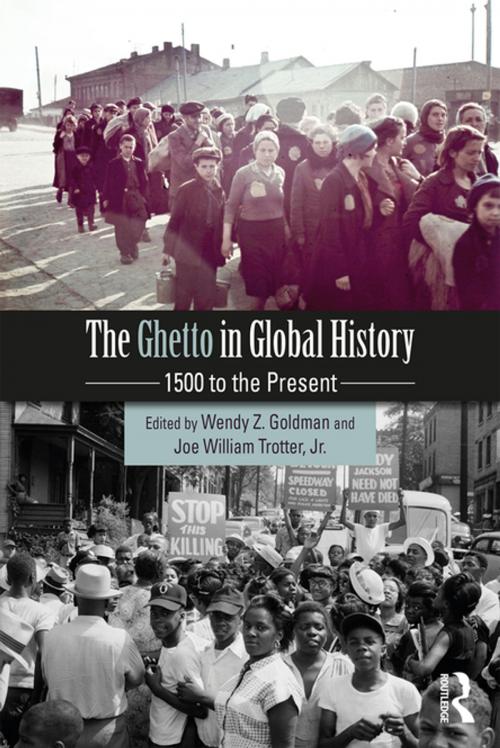| Author: | ISBN: | 9781351584104 | |
| Publisher: | Taylor and Francis | Publication: | November 27, 2017 |
| Imprint: | Routledge | Language: | English |
| Author: | |
| ISBN: | 9781351584104 |
| Publisher: | Taylor and Francis |
| Publication: | November 27, 2017 |
| Imprint: | Routledge |
| Language: | English |
The Ghetto in Global History explores the stubborn tenacity of ‘the ghetto’ over time. As a concept, policy, and experience, the ghetto has served to maintain social, religious, and racial hierarchies over the past five centuries. Transnational in scope, this book allows readers to draw thought-provoking comparisons across time and space among ghettos that are not usually studied alongside one another.
The volume is structured around four main case studies, covering the first ghettos created for Jews in early modern Europe, the Nazis' use of ghettos, the enclosure of African Americans in segregated areas in the United States, and the extreme segregation of blacks in South Africa. The contributors explore issues of discourse, power, and control; examine the internal structures of authority that prevailed; and document the lived experiences of ghetto inhabitants. By discussing ghettos as both tools of control and as sites of resistance, this book offers an unprecedented and fascinating range of interpretations of the meanings of the "ghetto" throughout history. It allows us to trace the circulation of the idea and practice over time and across continents, revealing new linkages between widely disparate settings.
Geographically and chronologically wide-ranging, The Ghetto in Global History will prove indispensable reading for all those interested in the history of spatial segregation, power dynamics, and racial and religious relations across the globe.
The Ghetto in Global History explores the stubborn tenacity of ‘the ghetto’ over time. As a concept, policy, and experience, the ghetto has served to maintain social, religious, and racial hierarchies over the past five centuries. Transnational in scope, this book allows readers to draw thought-provoking comparisons across time and space among ghettos that are not usually studied alongside one another.
The volume is structured around four main case studies, covering the first ghettos created for Jews in early modern Europe, the Nazis' use of ghettos, the enclosure of African Americans in segregated areas in the United States, and the extreme segregation of blacks in South Africa. The contributors explore issues of discourse, power, and control; examine the internal structures of authority that prevailed; and document the lived experiences of ghetto inhabitants. By discussing ghettos as both tools of control and as sites of resistance, this book offers an unprecedented and fascinating range of interpretations of the meanings of the "ghetto" throughout history. It allows us to trace the circulation of the idea and practice over time and across continents, revealing new linkages between widely disparate settings.
Geographically and chronologically wide-ranging, The Ghetto in Global History will prove indispensable reading for all those interested in the history of spatial segregation, power dynamics, and racial and religious relations across the globe.















